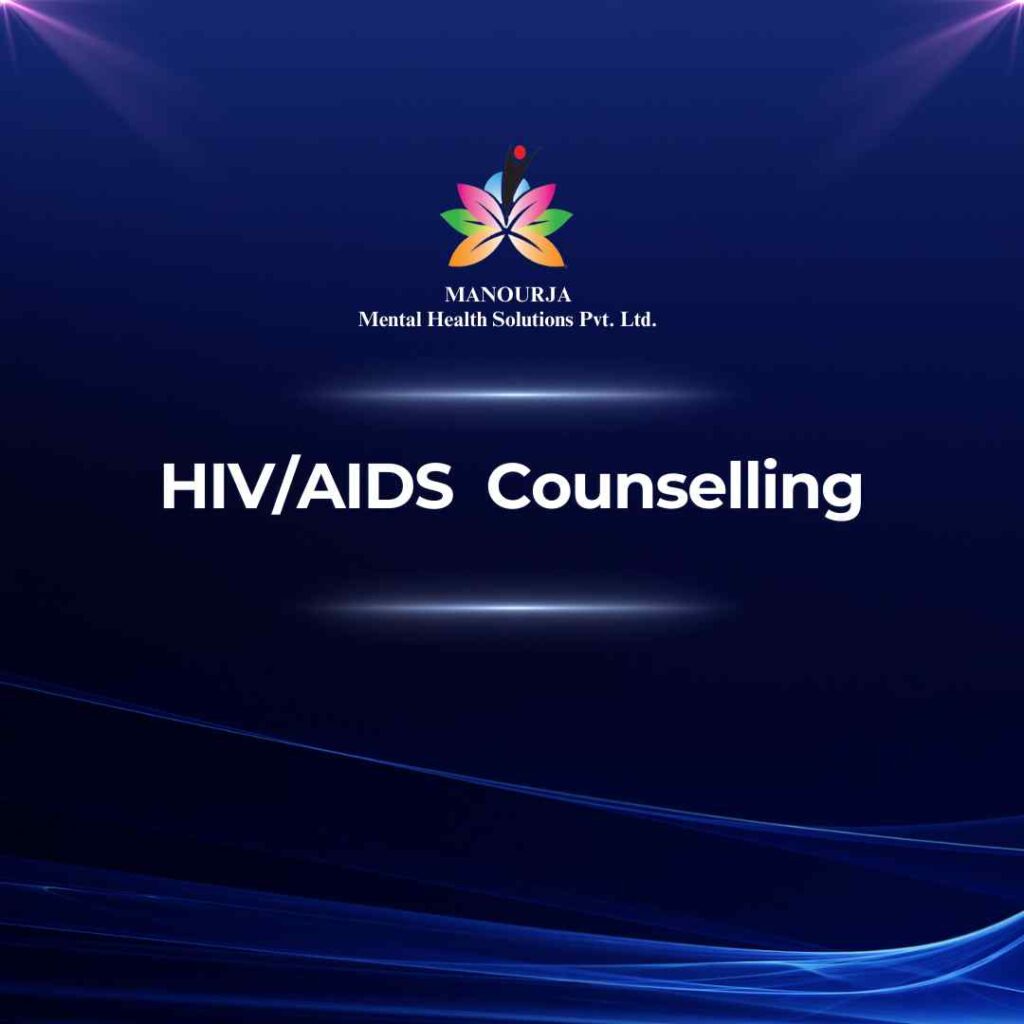HIV/AIDS Counselling

HIV (Human Immunodeficiency Virus) is a virus that attacks immune system of the body. If not treated, it can lead to AIDS (Acquired Immunodeficiency Syndrome), which is the most severe phase of HIV infection where the immune system is badly damaged and becomes vulnerable to infections and diseases. Symptoms can vary significantly between individuals and different stages of the disease.
Common Symptoms of HIV/AIDS Include
- Early Stage of HIV (Acute HIV): Often resembles a bout of influenza or other viral illnesses, including fever, swollen lymph nodes, sore throat, rash, muscle and joint pains, headaches, or gastrointestinal symptoms.
- Chronic HIV (Clinical Latency Stage): May not have any specific symptoms, though minor infections or chronic symptoms like swollen lymph nodes may persist.
- AIDS: The most advanced stage of HIV infection, characterized by a severely damaged immune system. Symptoms might include rapid weight loss, recurring fever or profuse night sweats, extreme and unexplained tiredness, prolonged swelling of the lymph glands, prolonged diarrhea, sores of the mouth, anus, or genitals, pneumonia, blotches on or under the skin or inside the mouth, nose, or eyelids, and memory loss, depression, and other neurologic disorders.
These symptoms and the diagnosis of HIV/AIDS can bring significant emotional, psychological, and social challenges, profoundly affecting the individual and their family.
How Counselling at MANOURJA Effectively Treats HIV/AIDS
Counselling plays a crucial role in supporting individuals with HIV/AIDS by addressing the complex psychological and social issues related to living with this chronic illness.
- Psychoeducation: Educating patients about their condition, treatment options, and how to manage their health, which is vital for improving treatment adherence and lifestyle adjustments.
- Emotional Support: Providing a safe space to express feelings of fear, grief, and anger, which are common after a diagnosis or as the disease progresses.
- Coping Strategies: Assisting in developing effective coping mechanisms to manage the stress and psychological impact of HIV/AIDS.
- Stigma and Discrimination Counselling: Addressing issues of stigma and discrimination that are often faced by individuals with HIV/AIDS, helping to build resilience and reduce isolation.
- Family Counselling: Engaging family members to foster a supportive home environment, educating them about HIV/AIDS, and helping them cope with the emotional burden of the diagnosis.
Steps in MANOURJA’s Counselling Process for HIV/AIDS
- Initial Assessment: Comprehensive evaluation to understand the individual’s physical health, psychological state, and social context.
- Goal Setting: Establishing realistic and personalized goals related to emotional health, medical management, and social well-being.
- Development of a Tailored Treatment Plan: Crafting a plan that incorporates psychoeducation, emotional support, coping strategies, and family involvement.
- Regular Counselling Sessions: Engaging in ongoing therapeutic sessions aimed at addressing emerging needs, monitoring emotional health, and adjusting coping strategies.
- Continuous Evaluation and Support: Regularly assessing the effectiveness of the interventions and making necessary adjustments to optimize outcomes.
Through Counselling, MANOURJA aims to empower individuals with HIV/AIDS to maintain their health and improve their quality of life, while also supporting their families in navigating the challenges of the disease together.
“Every day is a new chance to live your truth and embrace life with renewed strength and hope.”
